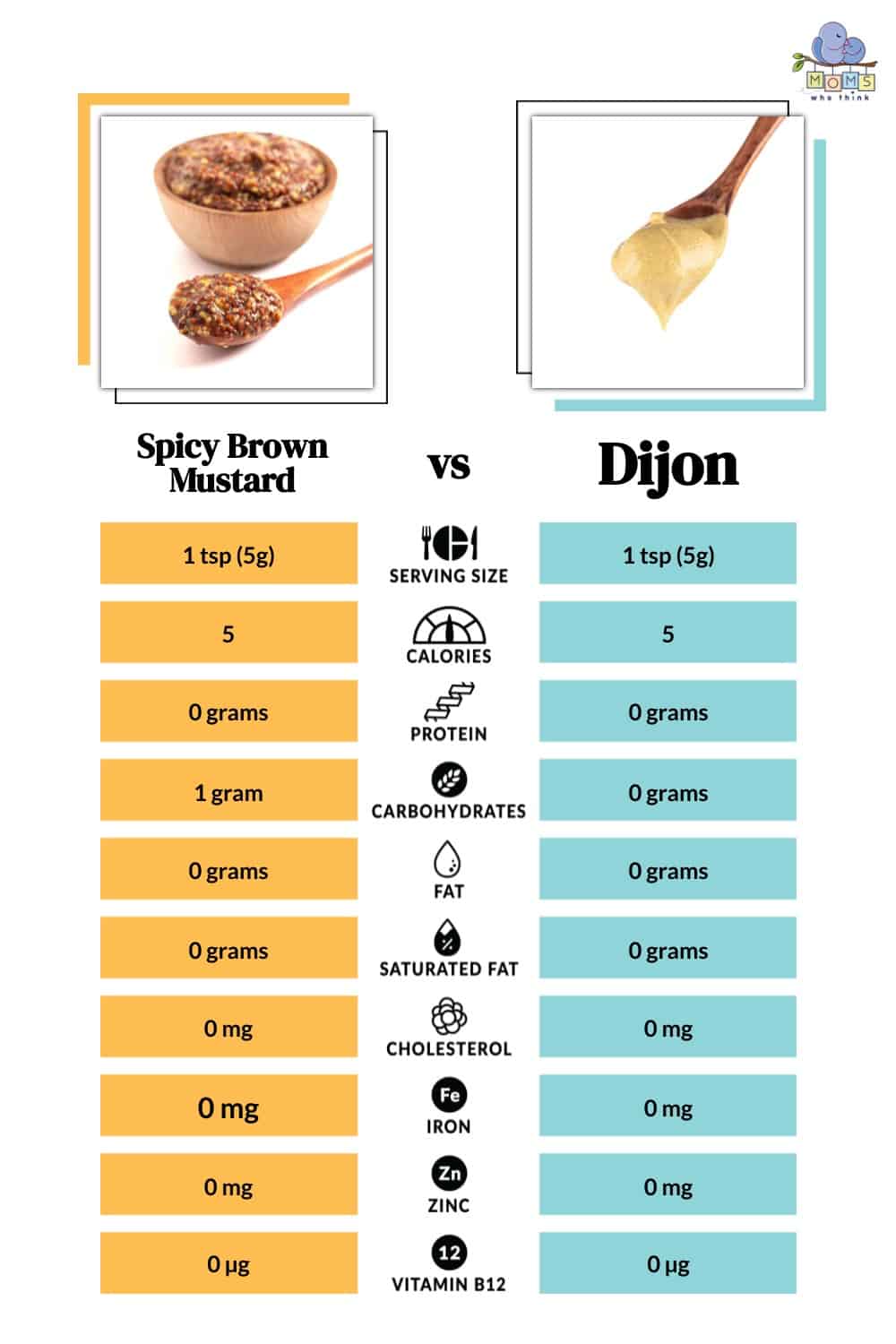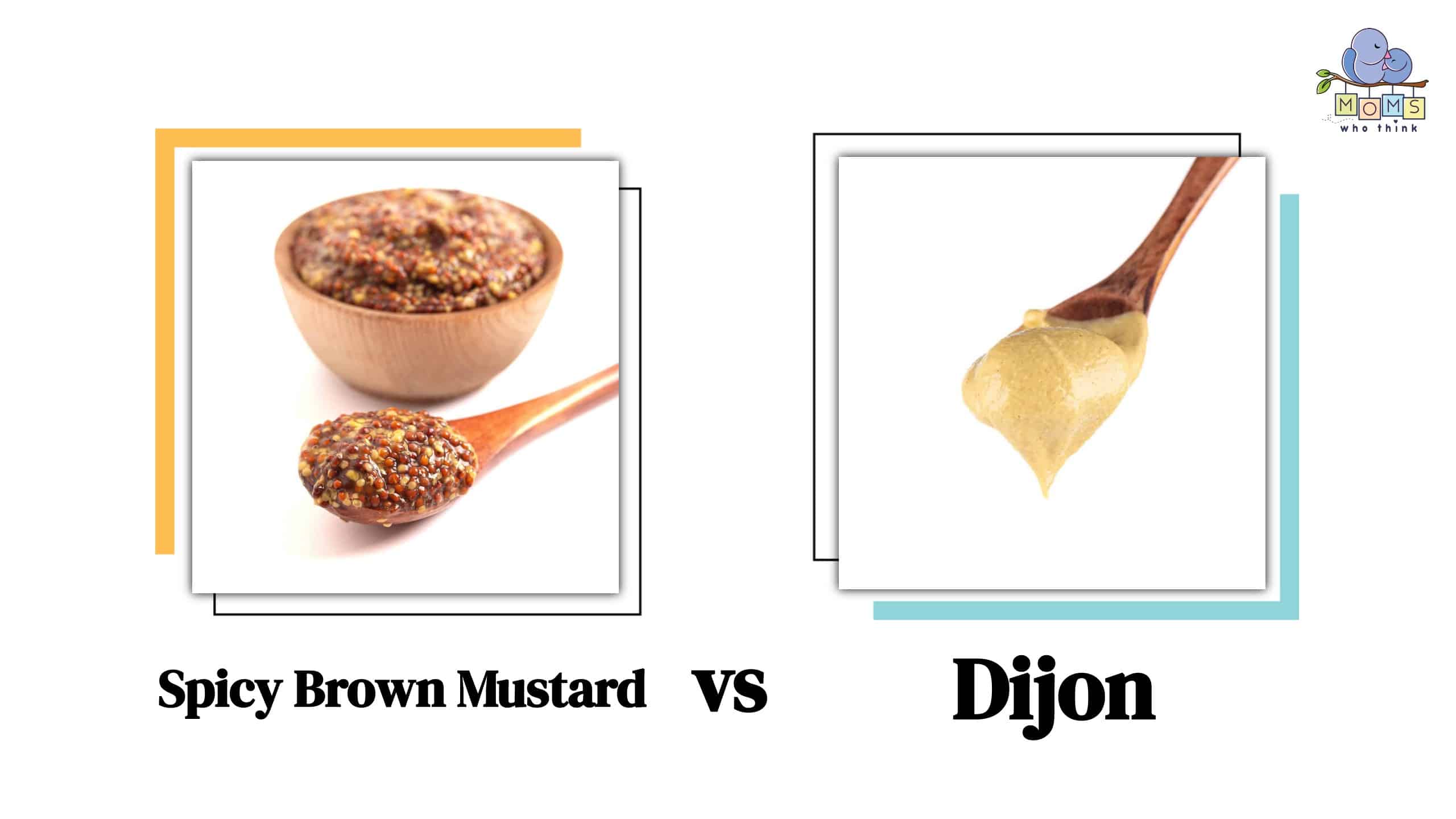Mustard, a versatile condiment beloved by many, comes in various types and flavors. Two popular varieties that often take center stage in the culinary world are spicy brown mustard and Dijon mustard. While both bring a punch of flavor to a variety of healthy meals, there are distinct differences that set them apart.
In this article, we will delve into the intriguing world of mustard and explore the six key differences between spicy brown mustard and Dijon mustard, while also comparing their taste profiles. Whether you're a mustard aficionado or simply looking to elevate your culinary creations, understanding these differences will help you make the perfect choice for your next meal.
1. Spicy Brown Mustard vs. Dijon: Liquid Base
The primary distinction between spicy brown mustard and Dijon mustard is found in the liquid used to combine the ground mustard seeds. Dijon mustard typically uses white wine as its liquid base, which lends it a distinct and sophisticated flavor profile. This combination gives Dijon mustard a tangy and slightly acidic taste that adds depth to various dishes.
On the other hand, spicy brown mustard may use less vinegar than standard mustard. Instead, it often incorporates other liquids such as water or beer to achieve its unique flavor. This variation in liquid ingredients contributes to the spiciness and earthiness of spicy brown mustard. The additional spices used in its preparation further enhance its complexity, making it a favorite among those who prefer a bolder and more robust taste.
2. Spicy Brown Mustard vs. Dijon: Mustard Seeds
Dijon mustard, a staple in French cuisine, is often made with a combination of brown and/or black mustard seeds. These particular seeds are responsible for the pungent and spicy flavor that Dijon mustard is known for. The brown and black mustard seeds have a higher concentration of volatile compounds, such as allyl isothiocyanate, which give Dijon mustard its distinctive kick.
In contrast, spicy brown mustard primarily utilizes brown mustard seeds in its preparation. These seeds are hotter and have a more pronounced flavor compared to the milder yellow mustard seeds commonly used in traditional yellow mustard. The brown mustard seeds contain higher levels of glucosinolates, which, when combined with water or other liquid ingredients, release enzymes that create a sharp, spicy taste.
3. Spicy Brown Mustard vs. Dijon: Texture
Spicy brown mustard stands out not only for its distinct flavor but also for its coarser texture compared to Dijon mustard, which has a smooth and creamy texture. The reason behind this lies in the preparation process. Unlike other mustards, spicy brown mustard retains the bran on the mustard seeds, which adds a slightly grainy texture to the final sauce. This inclusion of the bran, or outer layer of the seeds, gives spicy brown mustard its unique mouthfeel.
While some may prefer the smooth consistency of other mustards such as Dijon, the coarser texture of spicy brown mustard adds an element of depth and character to dishes, making it an appealing choice for those seeking a more textured condiment experience.
4. Spicy Brown Mustard vs. Dijon: Heat Level
Spicy brown mustard is renowned for its elevated heat level, setting it apart from the milder Dijon mustard. The intensity of its spiciness can be attributed to a combination of factors. Firstly, the use of hotter mustard seeds in the production of spicy brown mustard contributes to its fiery nature. These seeds contain higher levels of pungent compounds, such as allyl isothiocyanate, which ignite the taste buds with their potent heat.
Also, spicy brown mustard tends to have less acidity compared to Dijon mustard, allowing the heat to shine through even more prominently. The result is a nose-scorching heat that adds a thrilling kick to any dish, making spicy brown mustard the preferred choice for those who crave a more pronounced and intense flavor experience.
Although it doesn’t pack as much heat, Dijon mustard is more intense, sharp, and complex compared to milder yellow mustard. The flavor of Dijon mustard is characterized by its tanginess, a hint of acidity, and a subtle heat that adds depth to dishes.
5. Spicy Brown Mustard vs. Dijon: Flavor and Usage
Whether you opt for the pungent sophistication of Dijon mustard or the fiery punch of spicy brown mustard, both varieties offer unique and versatile flavor profiles that can elevate a wide range of dishes.
Dijon mustard adds a bold and tangy kick to various dishes, making it an ideal choice for vinaigrettes, sandwich spreads, mayonnaise, and homemade sauces. The complex flavor of Dijon mustard complements the richness of these recipes, enhancing their overall taste profile.
On the other hand, spicy brown mustard, with its hotter and more pronounced flavor, is often used as a condiment for big, meaty sandwiches. Its intense heat and robust taste provide a satisfying kick that pairs perfectly with the substantial flavors of meat and cheese.
6. Spicy Brown Mustard vs. Dijon: Nutritional Value

When it comes to the nutritional value of spicy brown mustard and Dijon mustard, it's important to note that both condiments are generally low in calories and fat. However, the specific nutritional content may vary slightly depending on the brand and ingredients used.
Here is some information regarding the nutritional value of these mustards:
Spicy Brown Mustard Nutrition:
Spicy brown mustard has 5 calories per serving (1 tsp or 5g) and is not a significant source of saturated fat, trans fat, cholesterol, fiber, total sugars, vitamin D, calcium, iron, and potassium.
Dijon Mustard Nutrition:
Dijon mustard typically contains 4 calories per teaspoon (5g) and is generally low in calories and fat, similar to spicy brown mustard.
It's worth noting that mustard is typically consumed in small amounts, so the nutritional impact of these condiments is generally minimal. However, it's always a good idea to check the nutrition labels of specific brands or products for accurate and detailed information.
Remember, the primary purpose of mustard is to add flavor to dishes, and it can be enjoyed as part of a balanced diet when consumed in moderation.
Spicy Brown Mustard vs. Dijon: Taste Comparison
When it comes to taste comparison, Dijon mustard is known for its sharp and pungent flavor, while spicy brown mustard offers a hotter and more pronounced flavor profile.
Dijon mustard's flavor is characterized by its unique combination of brown mustard seeds, white wine, and vinegar. The brown mustard seeds contribute to its pungency, while the white wine adds complexity and depth to the flavor. The result is a mustard with a sharp and tangy taste that can range from mildly spicy to moderately hot, depending on the brand and variety.
On the other hand, spicy brown mustard is known for its intense and robust flavor. It is typically made with brown mustard seeds, which are hotter and have a more pronounced taste compared to yellow mustard seeds. The reduced vinegar content in spicy brown mustard allows the natural flavors of the mustard seeds to shine through, resulting in a bolder and more fiery taste experience.
The choice between Dijon mustard and spicy brown mustard ultimately depends on personal preference and the specific dish or recipe being prepared. Dijon mustard's sharp and pungent flavor pairs well with vinaigrettes, sandwich spreads, and homemade sauces, adding a tangy kick to the dish. Spicy brown mustard, with its hotter and more pronounced flavor, is often used as a condiment for big, meaty sandwiches or to add a fiery kick to various recipes.
In Conclusion
In conclusion, the comparison between spicy brown mustard and Dijon mustard highlights their key differences and taste profiles. Spicy brown mustard, with its coarser texture and higher heat level, brings a bold and intense flavor to dishes. The inclusion of brown mustard seeds and the absence of excessive acidity contribute to its pronounced spiciness and unique grainy texture. On the other hand, Dijon mustard offers a pungent flavor with a more refined and sophisticated taste. Made with a combination of brown and/or black mustard seeds, white wine, and vinegar, Dijon mustard adds depth and complexity to various recipes.
Both mustards have their own distinct qualities and can be used creatively to enhance the flavors of a wide range of dishes. Whether it's the robust heat of spicy brown mustard or the tangy sophistication of Dijon mustard, these condiments provide a delightful taste experience that can elevate any culinary creation.

